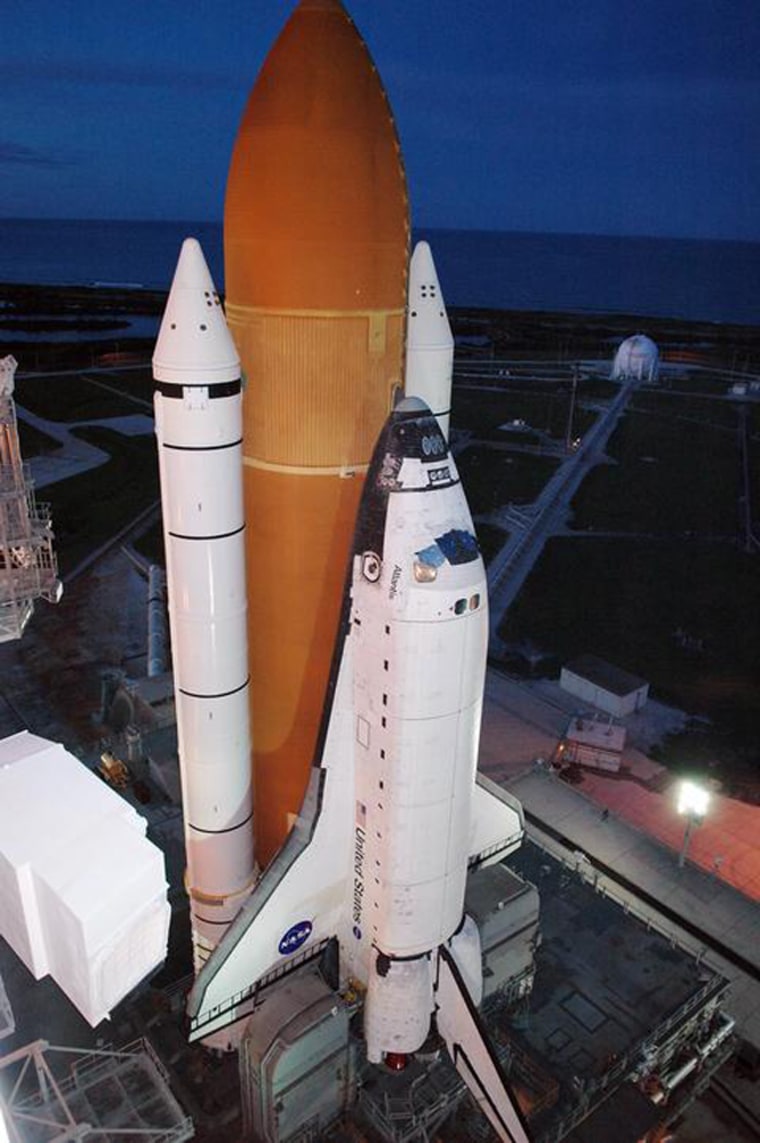After a week of weather delays, NASA officials have set a Wednesday launch time for space shuttle Atlantis on its mission to resume construction of the international space station.
Officials made the launch decision after checking the Kennedy Space Center for damage following Ernesto’s pass as a tropical depression. They found no problems. Peak gusts at the launch pad reached 44 mph (70 kilometers per hour), well below the 79 mph (126 kilometers per hour) threshold that requires the shuttle to be moved indoors.
“We’re back,” said NASA spokesman Bill Johnson. “There was no water intrusion in any operational areas, and so basically we came through this one unscathed.”
The launch time was set for 12:29 p.m. ET on Wednesday. If the shuttle does not lift off then, NASA has launch opportunities in the following two days.
Atlantis’ six astronauts, who flew in their training jets back to Houston earlier this week, planned to return to Florida on Saturday. The countdown was set to begin Sunday morning.
Tropical Storm Ernesto’s approach and a lightning strike on the launch pad last week had forced NASA to delay the launch. On Tuesday, NASA started bringing Atlantis back from its launch pad to the safety of its Vehicle Assembly Building, but later in the day it reversed course and returned the shuttle to the pad after determining that Ernesto's winds wouldn't be as strong as initially thought.
If NASA had brought the shuttle all the way back to the VAB, it might not have been able to get the shuttle ready in time for next week's launch opportunities.
If the shuttle blasts off next week, the Russian space agency will push back its launch of a Soyuz vehicle by four days to Sept. 18 to avoid a traffic jam at the space station. The Soyuz will ferry two new station crew members and the first female space passenger.
This report was supplemented by information from MSNBC.com.
